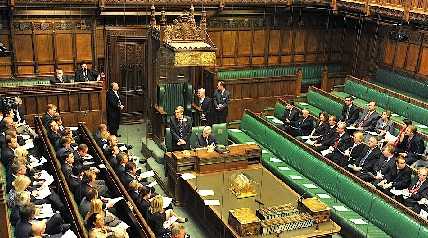
20 June 2023; MEMO: The UK government has introduced an anti-boycott bill which grants Israel special protection against public bodies from taking a moral and ethical stance against the racist and discriminatory practices of the apartheid state. Details of the bill proposed by the Tory Minister, Michael Gove, includes a special anti-democratic clause that blocks UK public bodies from ever sanctioning Israel while allowing for exceptions specified by the government.
If passed, "The Economic Activity of Public Bodies (Overseas Matters) bill will prohibit procurement and investment decisions made by public bodies that it says are "influenced by political or moral disapproval of foreign state conduct". It states that the government can "specify a country or territory" for which the bill "does not apply", meaning that the bill allows for exceptions specified by the government.
However, the exception clause does not extend to Israel which is granted complete immunity. The text explicitly states that such exemption "may not specify" decisions or considerations "relating specifically or mainly to Israel, the Occupied Palestinian Territories, or the Occupied Golan Heights". These territories are occupied under international law and the UK itself has stated that the bill does not change Britain's position on settlements, "which are illegal under international law".
First set out in the Queen's speech in 2022 after a commitment in the 2019 Conservative general election manifesto, the bill was presented to Parliament yesterday. During comments announcing the bill, Gove appeared to conflate anti-Semitism with criticism of Israel, a view that has been vigorously pushed by advocates of the highly controversial International Holocaust Remembrance Alliance (IHRA) definition of anti-Semitism. A report released this month uncovered shocking examples of the IHRA's weaponisation against critics of Israel.
Boycotts of organisations and businesses linked to Israel had led to "appalling anti-Semitic rhetoric and abuse," Gove said while introducing the bill.
Head of Palestinian Mission to the UK, Ambassador Husam Zomlot, joined in condemnation. "At a time when the international community, including the US, is pushing back on Israel's criminal disregard for international law, the British government is pushing a bill that, in effect, will only offer another layer of protection for Israel's illegal colonial settlement activity in occupied territory. For a country so closely identified with the rule of law, this is a very disappointing situation," Zomlot said on twitter referring to a statement by the US State Department condemning Israel's ongoing illegal settlement construction.
UK Director, Human Rights Watch, Yasmine Ahmed, warned about the protection that will be granted by the bill to autocrats around the world. "The Bill will restrict public bodies from divesting & not procuring from companies implicated in China's systematic repression of Uyghurs, Israel's crimes against Palestinians, Saudi/UAE crimes against Yemenis, & Myanmar junta's crimes against the Burmese," said Ahmed sharing a Times article about Uyghur Muslims denouncing the anti-boycott bill.
Nineteen Uyghurs have called on the government to reconsider the bill, saying that it "risks undermining efforts to hold the Chinese government to account for their crimes". While much of the focus on the bill has been on Israel, the activists argue that little thought has been given to how it will impact states such as China.
None of the countries mentioned have been granted protection from boycotts in the same way as Israel. The exception clause in the bill is likely to be weaponised as a political tool against enemies of the British state.
Ahmed also dismissed Gove's argument about the need to adopt the bill to combat anti-Semitism. "The claim that this Bill addresses anti-Semitism is just false. There is nothing anti-Semitic in avoiding financial complicity in Israel's human rights abuses against Palestinians – this is called complying with int'l law including human rights due diligence."
In a joint statement on Monday, major trade unions and pro-Palestine groups described the bill as an affront to freedom of speech and the rights of workers to show support for Palestine and other causes.
"We are concerned that this [bill] would prevent public bodies from deciding not to invest in or procure from companies complicit in the violation of the rights of the Palestinian people," the statement said.
"We affirm that it is the right of public bodies to do so and, in fact, a responsibility to break ties with companies contributing to abuses of rights and violations of international law in occupied Palestine and anywhere else where such acts occur."




